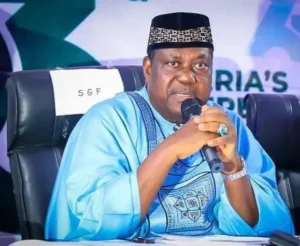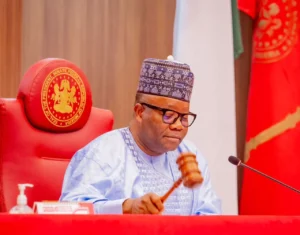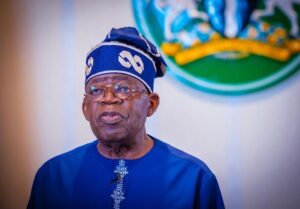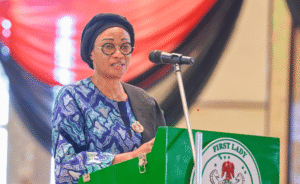Tinubu Orders Agric Ministry to Tackle Food Prices, as FG Launches Transport, Input Reforms
Tinubu Digital Campaign Network
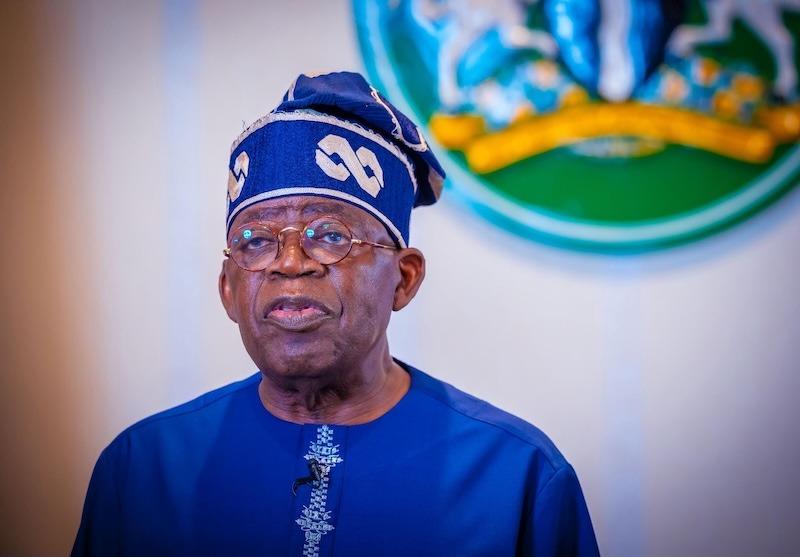
In a decisive move to curb spiraling food prices, President Bola Tinubu has issued a directive to the Federal Ministry of Agriculture and Food Security, mandating urgent actions to address the surging cost of food items across Nigeria.
This directive was disclosed by the Minister of State for Agriculture and Food Security, Senator Aliyu Sabi Abdullahi, during a one-day capacity-building workshop for the Senate Press Corps held at the National Assembly Library Complex in Abuja.

Speaking at the event, Abdullahi outlined a raft of reforms initiated by the Tinubu administration aimed at stabilising food prices, strengthening agricultural value chains, and alleviating economic pressure on Nigerian households.
Abdullahi said, “The President has issued a marching order, and a Federal Executive Council committee is actively working to ensure the seamless movement of food products across key routes.
“The cost of transporting food significantly affects final prices, and this government is determined to intervene.”
A major component of the government’s intervention strategy is addressing the inefficiencies in Nigeria’s food transport system, which has long been identified as a major driver of food inflation.

The minister said poor transportation infrastructure continues to cause significant post-harvest losses and price surges.
To mitigate this, the Federal Ministry of Agriculture is ramping up the Post-Harvest for Sustainable Development Programme, which aims to support farmers in reducing losses and enhancing storage and distribution capacity.
“The government is also launching initiatives such as the Farmer’s Health Skill Programme and a comprehensive reform of agricultural cooperatives to empower rural communities and boost local production,” Abdullahi added.
The minister emphasized that reducing dependence on imported agricultural inputs is critical to insulating the country from global price shocks.
“These reforms are crucial for ensuring food security, creating jobs, and relieving the economic burden on Nigerians,” he said.
Also speaking at the workshop, a former Presidential Adviser on National Assembly Matters, Senator Ita Enang, cautioned the 10th Senate against exceeding its constitutional mandate, particularly regarding the investigation of private companies not involved in managing public funds or executing federal laws.
Enang, a seasoned lawmaker who served in both chambers of the National Assembly from 1999 to 2015, said some recent actions by legislative committees suggest an overreach of authority that undermines the rule of law.
“There is a current trend where the legislature, through her committees, has exceeded her powers in many respects, especially concerning private companies and citizens beyond her remit,” Enang stated.
Citing legal precedents including DHL International Nigeria Ltd v. Senate and NECA & Ors v. Attorney-General of the Federation, he reaffirmed that the National Assembly’s investigative and legislative powers under Sections 88 and 89 of the 1999 Constitution (as amended) are limited to public entities and those managing public resources.
He quoted Justice J.H. Sankey of the Court of Appeal in the NECA case, who ruled that private entities not handling public funds or executing federal mandates cannot be subjected to legislative scrutiny.
“Any continued action by Senate Committees in this regard, especially with pending cases in court, amounts to undermining the rule of law,” Enang warned.
His caution follows an open letter published by the Nigeria Employers’ Consultative Association (NECA) in ThisDay on September 8, which raised alarms over what it described as legislative encroachment into corporate governance.
Enang echoed these concerns, saying such practices “create confusion, undermine the authority of MDAs, and waste valuable business resources.”
He advised the legislature to await the Supreme Court’s ruling on the matter before pursuing further inquiries into private companies.
Addressing the press corps, Enang encouraged journalists covering the National Assembly to prioritise substance over sensationalism in their reportage.
He said, “Parliamentary journalism is a specialised field that contributes significantly to democratic growth.
“I encourage you to study bills before reporting them. This improves both public understanding and journalistic credibility,” he said.
He also advocated for regular training of legislative correspondents through institutions like the National Institute for Legislative and Democratic Studies (NILDS).
Enang concluded by urging journalists to consider political office. “Others have done it. You too can,” he said.
The event was attended by key figures including the Senate Spokesperson, Senator Yemi Adaramodu; Clerk to the National Assembly, Mr. Kamoru Ogunlana; and the Director-General of NILDS, Prof. Abubakar Sulaiman, among others.
Participants included correspondents, and other media professionals covering National Assembly activities.

